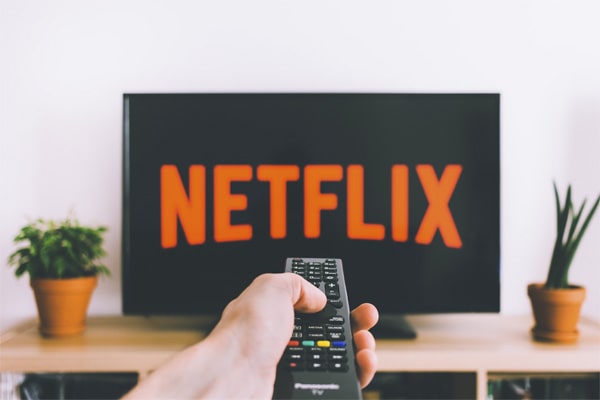What’s the Next State Opening up for Sports Betting Legislation?
Around the world, betting on sports has been a popular pastime for centuries. From gladiators to esports, audiences love the thrill of having some money riding on the outcome of a sporting event. For some, it’s something to do while having a drink at a sports bar. For others, it’s an addition to a classy day at the races or at a boxing match.
The laws surrounding sports betting in the United States have been undergoing a huge transformation since 2018. It seems like every few months a new state has announced that it’s introduced a bill to change the legislation or that the people of another state have just voted to legalize it.
Not every state has fully embraced in-person and online sports betting. Some have only allowed one or the other. Some have limited sports betting to tribal casinos and lands.
This article will explain why these changes have been happening so suddenly and quickly go over which states have already legalized some form of sports betting. Then we’ll suggest which states are likely to be next to take steps towards legalization.
Why are the laws changing now?
In 1992, the US Senate passed the Professional and Amateur Sports Protection Act (PASPA) which made betting on sports events illegal — with a few very minor exceptions. The Act had been passed due to fears that betting on sports was becoming a sort of national addiction and that waiting for each state to act would take too long to curb the problem.
This is how things stood until a case was brought before the Supreme Court in 2017. The state of New Jersey, with the support of then-Governor Chris Christie, managed to successfully argue that gambling was a states’ rights issue and the Supreme Court overturned PSAPA.
Within days of the verdict, New Jersey had begun to draft its sports betting legislation. We have seen so many states change their sports betting laws in the last four years thanks to the fact that they finally have the freedom to make these decisions for themselves.
Thankfully, most state legislatures have understood that sports betting is a great source of tax revenue. This has resulted in laws that are gambler-friendly and not overly restrictive.
What states have already made the jump to legalization?
At this point in time, most of the states have legalized sports betting in some form. In-person sports betting, also referred to as live sports betting, can only take place at a casino or on some other licensed premises. Some states, including Washington and New Mexico, only allow sports betting at tribal casinos. Others allow in-person and online betting. Nevada has created an unusual system — players may place bets online but first they must register at a casino in person.
Of the states that have legalized sports betting, 12 have also legalized online betting. These states are New Hampshire, New Jersey, Illinois, Colorado, Indiana, West Virginia, Pennsylvania, Iowa, Delaware, Rhode Island, Oregon and Nevada.
Florida has found itself in an uncertain situation that demonstrates the complex relationship between the state government, the federal government and the Native American tribes. Florida’s state government had created an agreement with the Seminole Tribe to allow them to manage sports betting anywhere in the state. Complaints from non-tribal casino owners resulted in a judge overturning the agreement. However, this was then challenged by the Federal agency that oversees Native American affairs.
Where will be next?
It’s safe to say that Utah won’t be joining the list any time soon. Hawaii is another state that is unlikely to embrace sports betting. Besides those two, most of the remaining states could potentially legalize sports betting in the next few years.
North Carolina was one of the first states to legalize in-person sports betting after the repeal of PASPA. State legislators are currently working to make online betting possible. One of the biggest reasons is college football. North Carolina has a huge number of football fans which could potentially earn the state a lot of tax revenue.
A bill to legalize online sports betting recently failed to pass in North Dakota’s state legislature. However, the lawmakers who supported it are planning to try again soon once the tribal sportsbooks have opened. Seeing their success should be enough to convince the rest of the legislature to support the bill.
Don’t Miss To Follow SuperbHub For More Updates On Celebrity Biography, News. and Entertainment.
Recent News
-

Duane Chapman Is Now Engaged To Girlfriend Francie Frane, Had Lost Wife 10 Months Earlier
-

Katherine Schwarzenegger Pregnant With Her First Child With Husband Chris Pratt
-

Chris Cuomo's Son Mario Tested Postive For Coronavirus
-

Kodak Black And NBA YoungBoy, Dissing One Another Via Social Media
-

Maeve Kennedy McKean, Robert F. Kennedy's Granddaughter, is Missing Along With Her Son
Entertainment
-

The Evolution of Entertainment: Online Casting Calls Redefining the Industry
-

Mamoudou Athie's Must-Watch Performances in the Movies and TV Series
-

Try These Unique Forms of Entertainment When You've Exhausted All Options
-

7 Best Movies on Netflix This Week
-

Campus Grooves: Exploring Music Festivals in American Colleges






